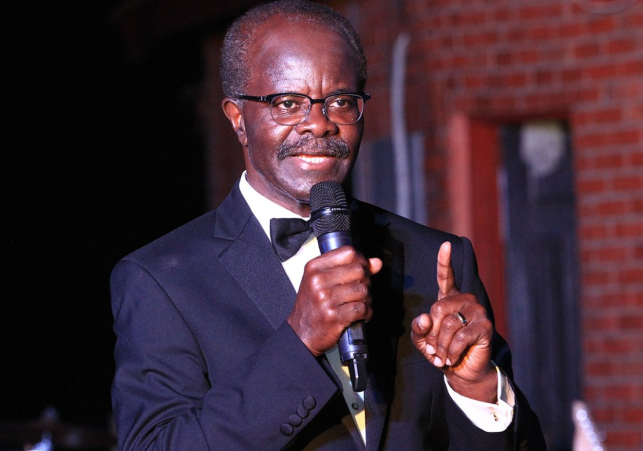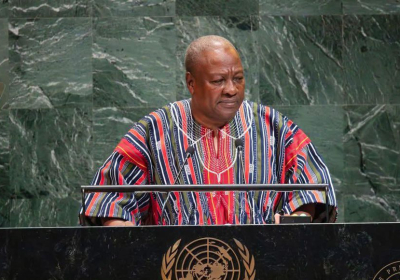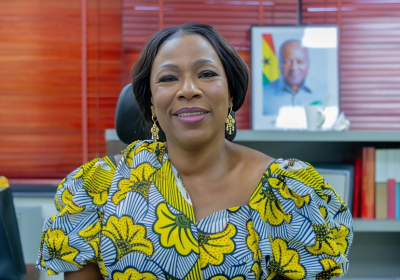"Dr. Nduom Applauds Parliamentary Power Play, Calls for a Stronger Legislative Role in Ghana"
Dr Paa Kwesi Nduom

"Dr. Nduom Applauds Parliamentary Power Play, Calls for a Stronger Legislative Role in Ghana"
The Progressive People's Party (PPP) was founded and is led by Dr. Papa Kwesi Nduom, recently expressed his exhilaration over a heated standoff brewing between the Speaker of Parliament, Alban Bagbin, and the Supreme Court regarding the issue of vacant parliamentary seats. This unprecedented standoff has captured national attention, with citizens and politicians alike closely observing the balance of power among Ghana's three branches of government. Dr. Nduom shared his thoughts during a Facebook Live session on Wednesday, 30th October 2024, exclaiming he felt “absolutely ecstatic” about the current state of affairs.
Dr. Nduom, a respected business magnate and former presidential candidate, highlighted that this standoff signals a turning point for Parliament’s role in the governance of Ghana. He remarked, “Finally, people are beginning to understand the power of Parliament and what it is supposed to be for us.” According to him, the stalemate has illuminated the need for Ghanaians to recognize Parliament’s critical role as a distinct and powerful entity within the government. To him, Parliament is not merely a rubber stamp for executive decisions but a central pillar of democracy that ensures checks and balances.
Reflecting on his experiences and the mission of the PPP, Dr. Nduom explained that he has long urged his party to focus on the importance of parliamentary representation. The Progressive People's Party has been receiving instructions to focus on Parliament. Why? He urged some of you to make an effort to attend Parliament. He gave an impression of how a single PPP member could change the way decisions and policies are put forward in Parliament. "If there was only one PNP member in parliament, what if our Parliament became great?" asked him. According to him, having a PPP representative would bring well-researched ideas and fresh perspectives that could help reshape policies and promote accountability.
The ongoing standoff has become a symbol of the struggle for power and autonomy among Ghana’s branches of government, and Dr. Nduom stressed the significance of maintaining this balance. He argued that the three arms of government—executive, legislative, and judiciary—must operate independently without undue influence from one another. He claimed that one of the three branches of government shouldn't repress the others by saying, "I have something against that because you are carrying out your standing orders," highlighting the importance of respecting the unique roles each branch plays.
The PPP founder’s perspective reflects a broader concern for Ghana’s democratic process and the importance of preventing any branch from overstepping its boundaries. “If the Speaker or Parliament as a whole is implementing Parliament’s standing orders, leave them to do that. Since Parliament is a separate branch of government, they have that authority, Dr. Nduom insisted, emphasizing the necessity of allowing Parliament the freedom to operate without judicial interference.
Adding to his sentiments on the critical role Parliament plays, Dr. Nduom expressed optimism about the current state of Parliament, given the slim majority between parties. He observed that this narrow margin is forcing both sides to engage in more robust debates and preventing the executive branch from taking unilateral actions. "This small majority exists, and I hope it keeps everyone awake and makes sure the executives don't do anything they want by some automatic fiat,” he explained.
Dr. Nduom’s statements have resonated with a segment of the population that feels Ghana’s democratic institutions need rejuvenation and assertiveness. His call for PPP representation in Parliament aligns with his party’s vision of promoting transparency, accountability, and governance reforms across all levels. The former presidential candidate’s insights are stirring conversations about the need for greater involvement from smaller parties to challenge the status quo and advocate for policies that genuinely serve the people.
As the standoff continues, it has become more than just a matter of vacant seats; it represents a test of Ghana’s democratic integrity and the resilience of its institutions. Dr. Nduom's perspective underscores a broader national reflection on the roles and boundaries of Ghana’s governance structures and the need to preserve the independence of each branch.







